Importance of Learning Spoken and Written English
26 Feb, 2025
.jpg)
 By FastInfo Class
Published On 06 Jun 2023
Updated On 13 Dec 2024
Category Spoken English Lessons
By FastInfo Class
Published On 06 Jun 2023
Updated On 13 Dec 2024
Category Spoken English Lessons
Do you want to learn to speak more than ‘hi’, ‘hello’, and ‘how are you’? Then, learning some useful phrases will make you speak more fluently like a native speaker.
Some Basic English phrases are more useful than others. Why not focus on mastering these phrases first? We planned to write this blog specifically for that reason.
The key English phrases for conversation will be covered in today’s blog, whether you are just beginning to learn English or are already fluent. If you are soon travelling to an English-speaking country, these phrases will be especially useful for you.
Here are 20 commonly used Basic English phrases for daily use. They are helpful phrases that will advance your English language skills.
We shall start with some common phrases for those of you who have just begun to learn English as a second language.
When you meet your friends, family, or anyone else you know and want to converse with them, you usually say, "How’re you?" or "How do you do?"
When someone asks about your well-being; you can use this phrase to respond. If you are in a really positive mood, you can also combine this with the phrases “I’m doing well” or “couldn’t be better”.
Have you made a mistake that you regret and want a pardon for? Saying “I am sorry” to them will serve as your apology. If you need to express regret over anything, use this Basic English phrase. Add “for” to provide more detail.
For instance, I am sorry for being so rude to you.
You can add “really” before “sorry” to imply that you are very sorry for something:
For instance, “I’m really sorry, for I haven’t told you this before.”
When you want to draw someone’s attention, you can use this phrase for polite expression. You can also use this phrase when someone is blocking your way, or you are in a congested area seeking a way out.
For instance: “Excuse me, madam, you have forgotten your pen here”.
Excuse me, let me go, please.
Don’t forget to add please wherever necessary, as English people are very civilized and speak very politely.
If someone helped you out with something or did something good for you, you can use this phrase to express your gratitude. It is a simple phrase you can use to thank someone. Add “for” after ‘much” to add more detail.
For instance: “Thank you so much for this special gift.”
“Thank you so much for your help in this tough situation.”
Saying “you’re welcome” is a nice approach to accepting the person's gratitude to the person when he/she says “Thank you."
You can also greet someone when they enter your home. You can accept their presence with a warm welcome by saying the same phrase.
Here are some basic English phrases you can use to introduce yourself to a fellow English speaker at work, school, a gathering, or anywhere else.
If it is your first meeting with someone, you may ask their name so you can remember them by it. For example:
“Hi, your name, please.” You can politely ask someone’s name in an unknown environment by saying it. You can ask their name at the very beginning of the conversation.
However, you can ask someone’s name by saying, “What’s your name, please?” with a smiling attitude. But...
When you ask the name of someone after someone’s audacity, you can ask their name directly, “What’s your name?”
At the first meeting, you can say, “I’m glad to see you here.”
Another person may say, “It’s nice to meet you.”
A brief greeting to express your feeling that you are happy to have someone’s company. When you see someone for the first time or are about to end the conversation, you can use this Basic English phrase. The example is mentioned just above.
More examples:
First Person: I’m sorry, but I need to leave to visit my mother.
You: “Not mind, it was nice to meet you.”
When you meet someone for the first time, they may ask you about your name. You can use this English phrase to tell your name. This is an informal expression. You can also ask them about theirs by saying, “And you?” or “What’s your name?” or “yours?”
For example: “Hi! My name is Rita, and you?”
It's a wonderful short question in conversation to learn more about someone’s location or origin, whether it’s their nationality or the city they grew up in. Most often, it refers to someone’s nationality or residential place. For example:
You: “Where’re you from”?
First Person: Although I was born in Mexico, I grew up in the United States!
Or I am from Kolkata.
If you don't know someone well, it's probably not a courteous question to ask. You can ask them to learn their age or threaten them!
Instances: “How old are you, boy?”
If you want to threaten:
“How could you behave like this, boy? How old are you?”
You can use this phrase at the end of the conversation to let someone know that you would be interested in meeting them again. You can also tell it at the end of a client meeting.
Are you planning to travel to the US, Australia, England, or another English-speaking nation? These below-mentioned travel English phrases may be useful to roam around.
When you get to a new place and need to find your hotel, a restaurant, a market, or a tourist space, this is a helpful phrase for asking how you will get there.
You: “I'm sorry. How do I get to Golden Gate Bridge”?
Whether you're at the market or talking to a shopkeeper in the neighbourhood, you can ask about the location of the ATM if you need to withdraw money.
You can use this phrase to inquire about the price when shopping at a market or store without a price tag in a new place.
You can ask for the contact number when the person is accustomed to you or knows you very well.
But, if you want to ask for the number from any unknown person or an unknown client, you can utter the expression.
“I'd like to discuss this matter over the phone. Would you mind sending me your phone number, please?”
Have you met a lovely boy or girl you want to stay in touch with? Or do you wish to get in touch with them again in the future? Ask about their social media sites or contact details in your own way! Cheers!
Finally, we will discuss the most common English phrases for conversation that you can use at work. If you are going to work with an English-speaking colleague or if you are currently employed by a company that has an English environment, you can use the following:
You can use this phrase frequently if you work at a customer service point or reception counter. When answering the phone, people frequently use this expression.
When you’re at work and picking up a call, you can use this phrase to know the person you’re conversing with. This is a simple, polite, and sophisticated phrase to ask the person about him or her.
If you want a short break during the conversation, you can use this phrase. You can also use it to show a client or customer that their turn is up next.
You can use “minute” instead of "moment.” “I will see you in just a minute.”
“Please wait a bit, I will see you in a moment/minute.”
Conclusion:
We hope that these Basic English phrases will improve your ability to speak English with confidence. You can learn them by heart so that you can use them whenever you require them. It is not difficult to remember all these 20 phrases if you learn them by heart. Practice these ones first and then we will enlist more phrases like these so that you can use them like a native speaker. If you want to learn fluent spoken English, and similar phrases, contact FastInfo Class®, the most recognized online spoken English teaching organization in Kolkata.
Online Spoken English learning classes by FastInfo Class® will provide you with useful idioms and phrases for the students and help them achieve their goals.

Importance of Learning Spoken and Written English
26 Feb, 2025
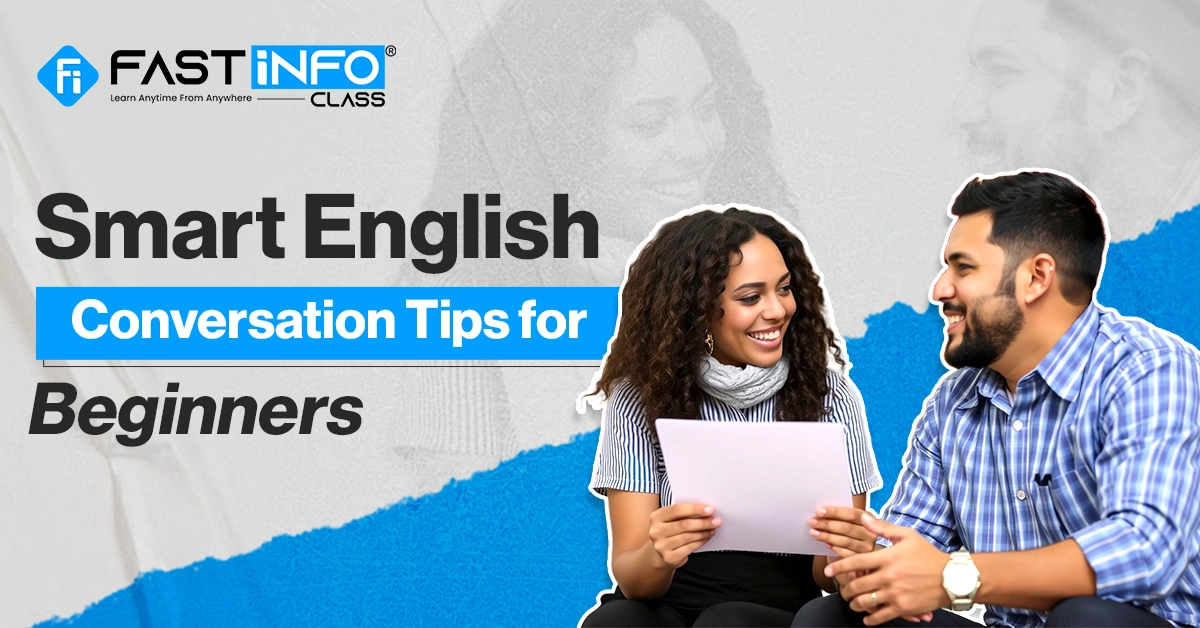
Smart English Conversation Tips for Beginners
26 Feb, 2025
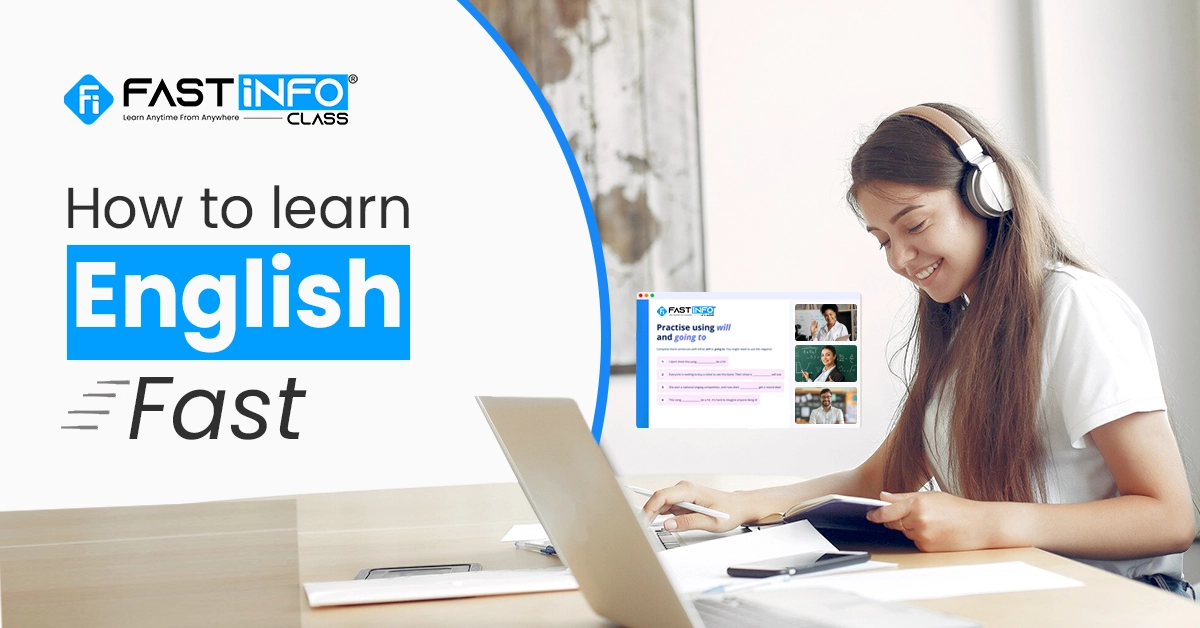
How to Learn English Fast: 10 Effective Tips
14 Feb, 2025

What is the Importance of English in Corporates?
13 Feb, 2025
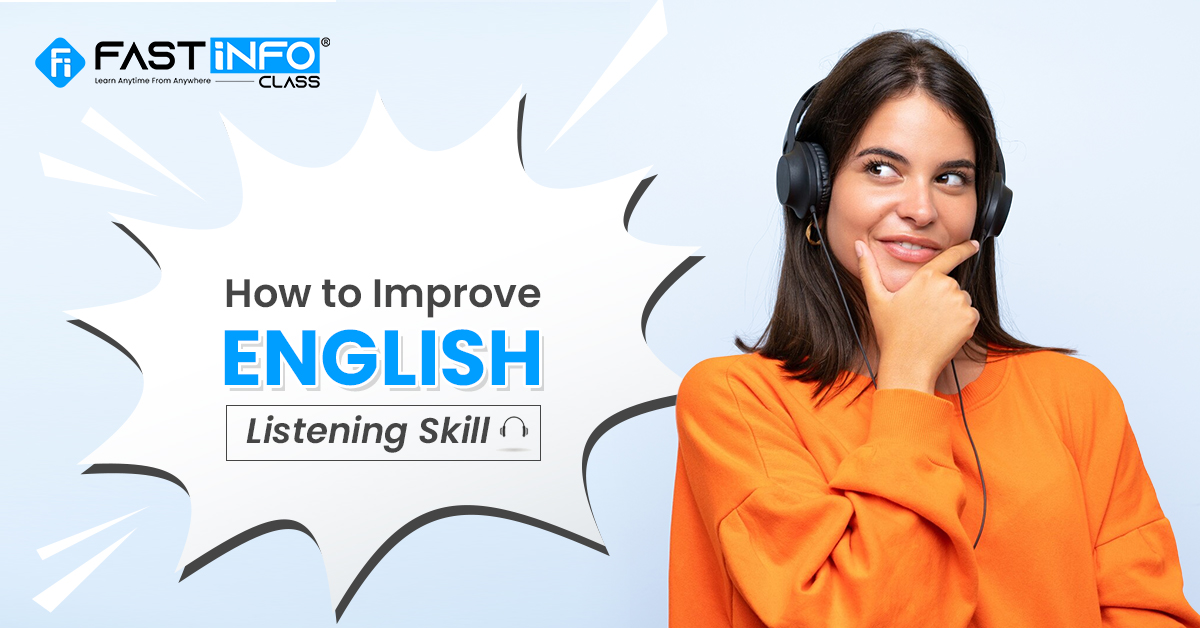
How to Improve English Listening Skills: 12 Tips
13 Feb, 2025
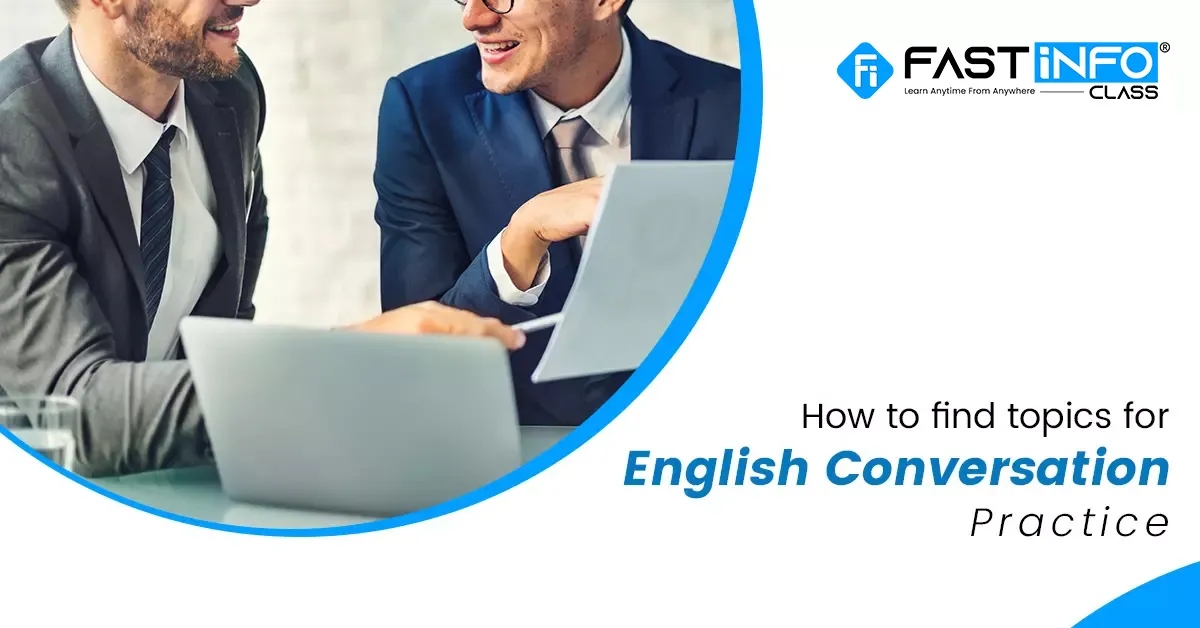
Daily English Conversation Practice for Beginners: 50 Useful Topics
29 Jun, 2023

Must Read Novels to Improve English for Beginners to Advanced
21 Feb, 2023
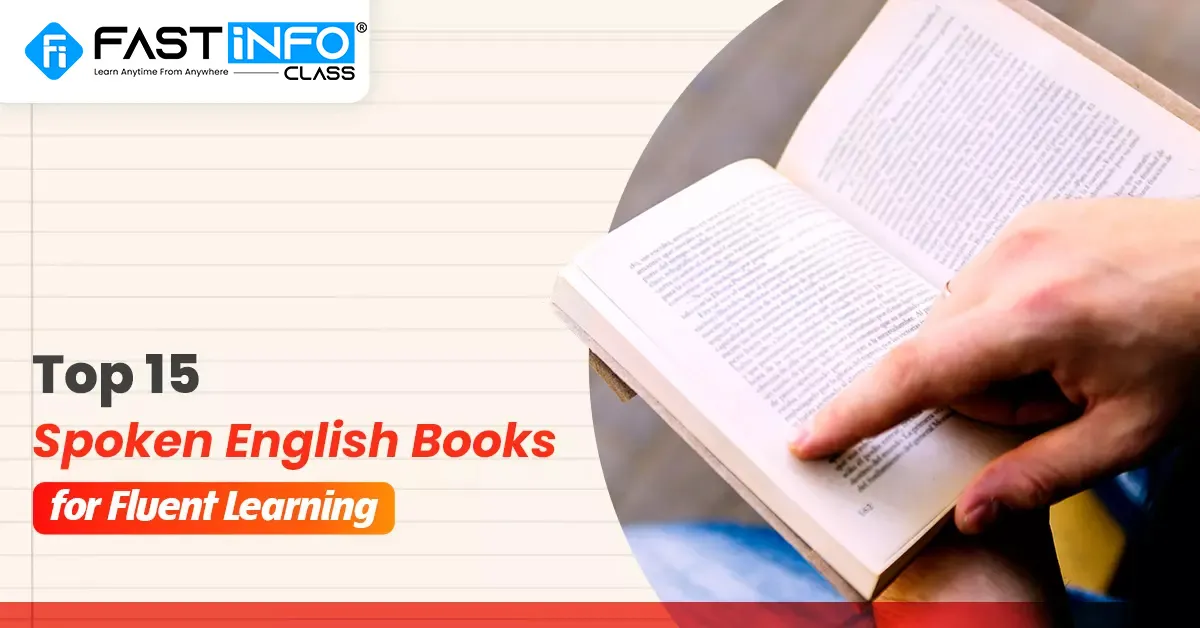
Top 15 Spoken English Books to Enhance Your Fluency
09 Sep, 2023
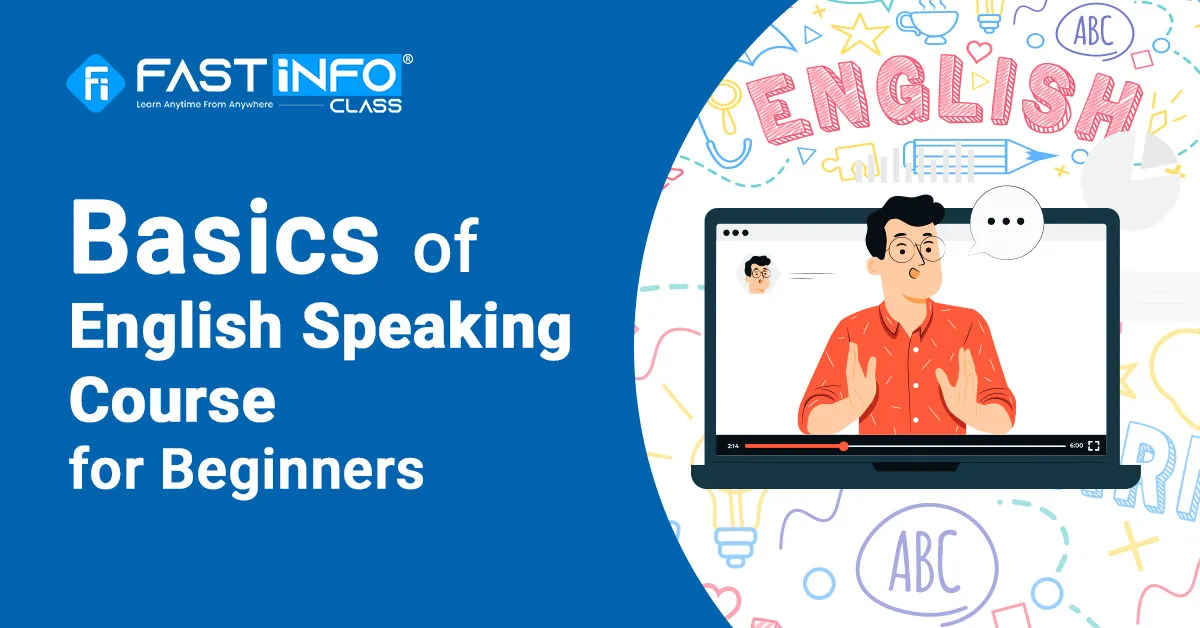
English Speaking Course for Beginners - Everything you must know
22 Sep, 2021
.webp)
What are the Benefits of Speaking English Fluently?
27 May, 2021